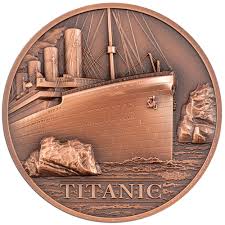Titanic Cook: The Unsung Heroes of the Legendary Voyage
The RMS Titanic, known for its tragic sinking in 1912, was also famed for its luxury and grandeur, which included an elaborate culinary experience. The cooks and kitchen staff on the Titanic played a crucial role in delivering world-class meals to passengers from all walks of life. Here’s a detailed exploration of the lives and duties of the Titanic cooks.
The Role of Cooks on the Titanic
Culinary Staff Structure
The Titanic's culinary team was vast and well-organized. It included:
- Executive Chefs: Responsible for overseeing the entire kitchen operation.
- Sous Chefs: Assisted the executive chefs and managed different kitchen sections.
- Line Cooks: Specialized in various types of cuisine and cooking methods.
- Pastry Chefs: Focused on creating desserts and baked goods.
- Butchers and Bakers: Prepared meats and baked fresh bread daily.
Duties and Responsibilities
The cooks were tasked with preparing meals for over 2,200 passengers and crew members. Their responsibilities included:
- Menu Planning: Creating diverse menus for first, second, and third-class passengers.
- Ingredient Preparation: Ensuring the availability of fresh ingredients.
- Cooking: Preparing meals according to the highest standards, especially for first-class passengers.
- Sanitation: Maintaining a clean and organized kitchen environment.
The Menus on the Titanic
First-Class Dining
First-class passengers enjoyed an opulent dining experience with menus featuring:
- Oysters
- Consommé Olga
- Poached Salmon with Mousseline Sauce
- Filet Mignon Lili
- Roast Duckling with Apple Sauce
- Peaches in Chartreuse Jelly
Second-Class Dining
Second-class passengers also had access to high-quality meals, including:
- Curried Chicken and Rice
- Roast Lamb with Mint Sauce
- Plum Pudding
- American Ice Cream
Third-Class Dining
Third-class passengers, though provided with simpler meals, still enjoyed hearty and nutritious fare:
- Vegetable Soup
- Roast Pork with Sage and Pearl Onions
- Boiled Potatoes
- Plum Pudding with Sweet Sauce
Challenges Faced by Titanic Cooks
Limited Resources
Despite the luxurious setup, the cooks had to work within the limitations of the ship's provisions. They relied heavily on preserved and canned goods, especially during the later days of the voyage.

Titanic Cook
High Expectations
The culinary team was under immense pressure to meet the high expectations of first-class passengers, who were accustomed to the finest dining experiences.
Working Conditions
The kitchen staff worked long hours in hot, cramped conditions. The lower decks, where the kitchens were located, were often sweltering due to the proximity to the ship's boilers.
Heroic Acts During the Sinking
Charles Joughin: The Heroic Baker
One of the most famous stories is that of Charles Joughin, the chief baker. He is renowned for his remarkable survival story during the sinking. Joughin reportedly threw deck chairs into the water to serve as flotation devices for passengers. He survived in the freezing Atlantic waters for hours before being rescued, attributing his survival to the amount of alcohol he had consumed, which supposedly kept him warm.
Assisting Passengers
Many cooks and kitchen staff members assisted passengers during the evacuation, helping them to lifeboats and providing comfort in their final moments.

Titanic Cook
Legacy of the Titanic Cooks
Culinary Excellence
The Titanic's culinary team left a legacy of excellence and dedication, showcasing the importance of skilled cooks in creating memorable dining experiences even in the most challenging environments.
Heroism and Sacrifice
The bravery and selflessness of the Titanic cooks during the disaster are remembered as a testament to their character and commitment. Their stories of heroism add a human element to the tragic tale of the Titanic.
Conclusion
The cooks on the Titanic were more than just culinary experts; they were integral to the ship's operation and contributed significantly to the passenger experience. Their dedication to their craft, under trying circumstances, highlights their importance in maritime history. The legacy of the Titanic cooks continues to be remembered as a symbol of culinary excellence and heroic sacrifice.